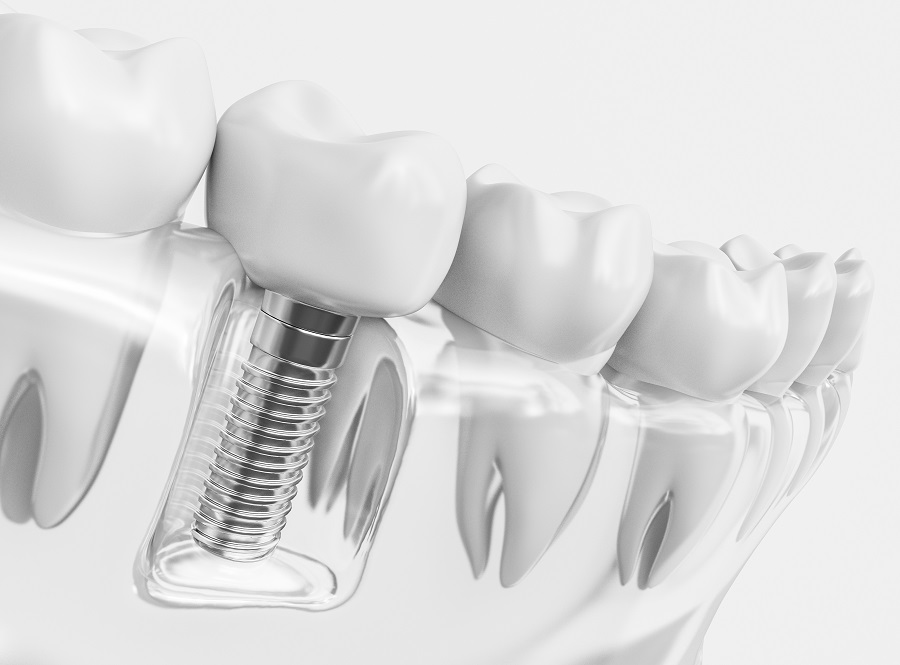DENTAL IMPLANT SURGERY - WHAT YOU NEED TO KNOW
 Missing teeth can inflict a range of problems from causing misalignment of the bite and altering the facial shape to making a person self-conscious and causing awkwardness in both social and work-related situations. For all this, artificial teeth that are attached to the jawbone with a dental implant may be the solution.
Missing teeth can inflict a range of problems from causing misalignment of the bite and altering the facial shape to making a person self-conscious and causing awkwardness in both social and work-related situations. For all this, artificial teeth that are attached to the jawbone with a dental implant may be the solution.
What is a dental implant?
Dental implants are artificial teeth roots that are surgically implanted into the jawbone. Once the implant is in place, it will take a few months for the bone to grow and surround the implant, so that it is firmly lodged in place. Once that happens, an invisible metal connector is used to attach the new artificial teeth to the implant. The gap is filled and the artificial teeth look just like the natural ones.
Also Read: Is Teeth Whitening Safe?
Types of dental implants
There are two common types of implants.
- The first type is endosteal or in-the-bone dental implants. These look like small screws and a dentist surgically implants them into the jawbone. One implant may be used to anchor more than a single tooth if it is required. A dentist will take a call on this.
- If there is not enough healthy jawbone for the endosteal method to be used, subperiosteal implants may be used. These are surgically placed under the gums but are not drilled into the bone to avoid damaging it. These implants are placed either on or above the bone and not in it.
Dental implant procedure
The process starts with the dentist evaluating teeth, gums, jawbone, and overall dental hygiene and health. A decision will then be taken on whether you are a suitable candidate and which type of implant is right for you. In some cases, other preliminary treatments may be needed to make the implant successful. Dental implants are normally an outpatient procedure which means it is done in the dentist's office and you can return home after it is over. Multiple sessions will be required, depending on the type and number of implants to be put in place. After the first session, you may be offered a temporary removable tooth, both for aesthetic reasons and also to protect the new implant. There may be some discomfort after each session, and if required the dentist will prescribe medication to bring it down. Normally, you will be able to return to normal activities the day after each session.
Also Read: Understanding Common Dental Treatments
Fitting new teeth
Once the healing is complete, new teeth will be made that will match your old existing teeth. Your dentist may offer you the choice of fixed or removable teeth. The fixed one will be permanently attached to the implant and the removable one can be unscrewed and removed for cleaning.
Only your dentist can decide if dental implants are right for you, how many you need, and what type they should be. The process of getting implants may take a little time to complete but the advantage of replacing missing teeth permanently and regaining your smile makes it more than worthwhile. Once the implants are done and the new teeth are in place, you can treat them just like ordinary teeth. No special care is required. Contact your dentist to learn more about dental implant surgery and the types of dental implants.
- Jan 30, 2023
